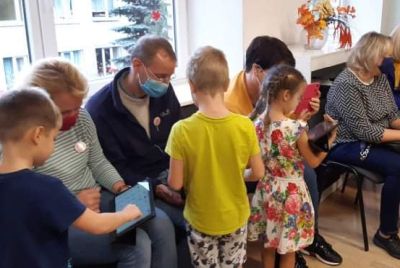- HOME
- COURSE
- Module 1: Introduction to Digital Transformation and Digitalization of Education
- Module 2: Digitalization of Kindergartens and Digital Resources for Kindergartens
- Module 3: Development of Computational Thinking in Kindergartens
- Module 4: Learning Digital Safety and Responsible Use of Internet and Media in Kindergartens
- Module 5: Learning Digital Wellbeing in Kindergartens
- MATERIALS
- ABOUT US

Development of Digital Competence in Pre-School Education
Module 2: Digitalization of Kindergartens and Digital Resources for Kindergartens
Welcome to Module 2!

